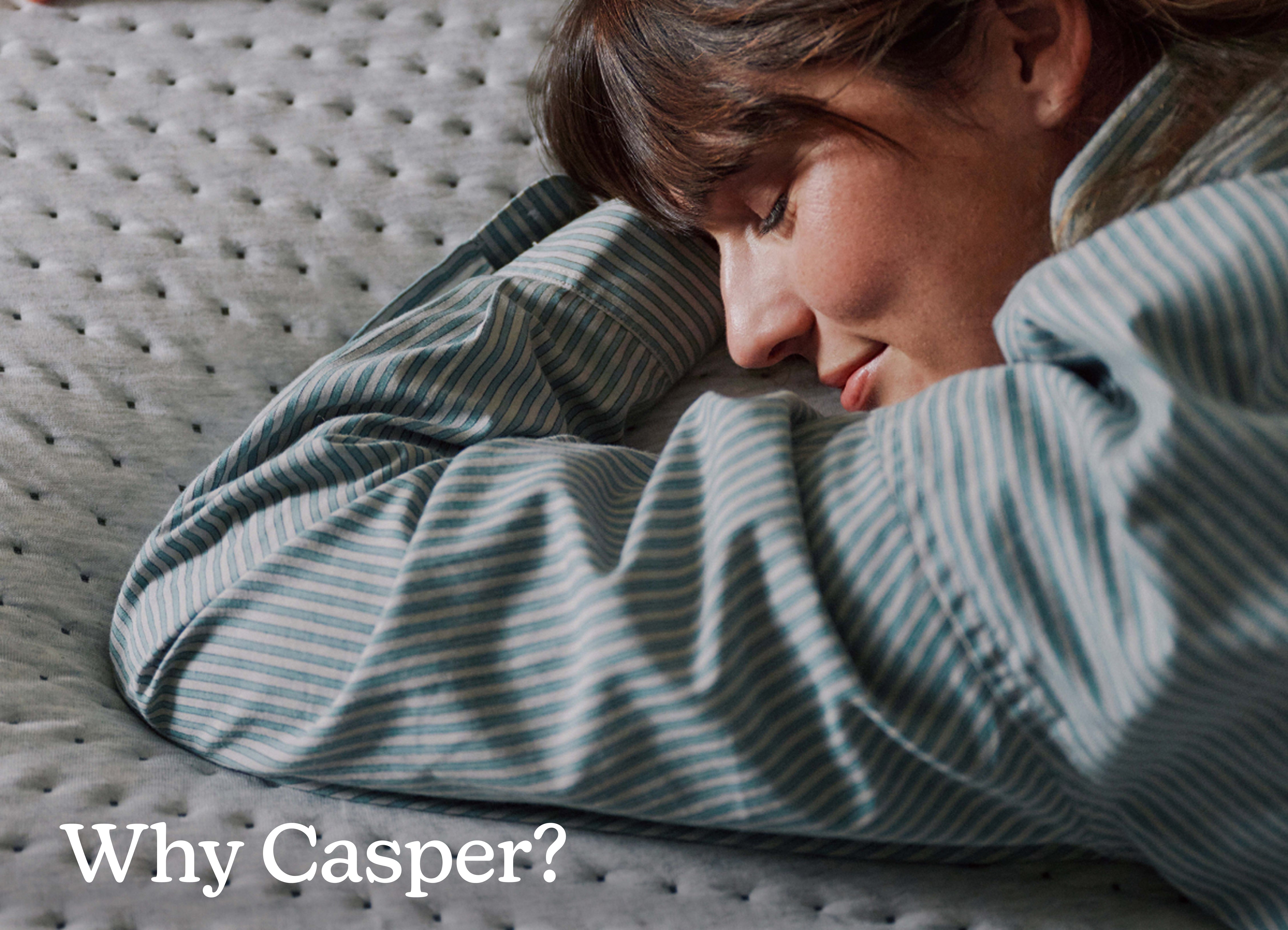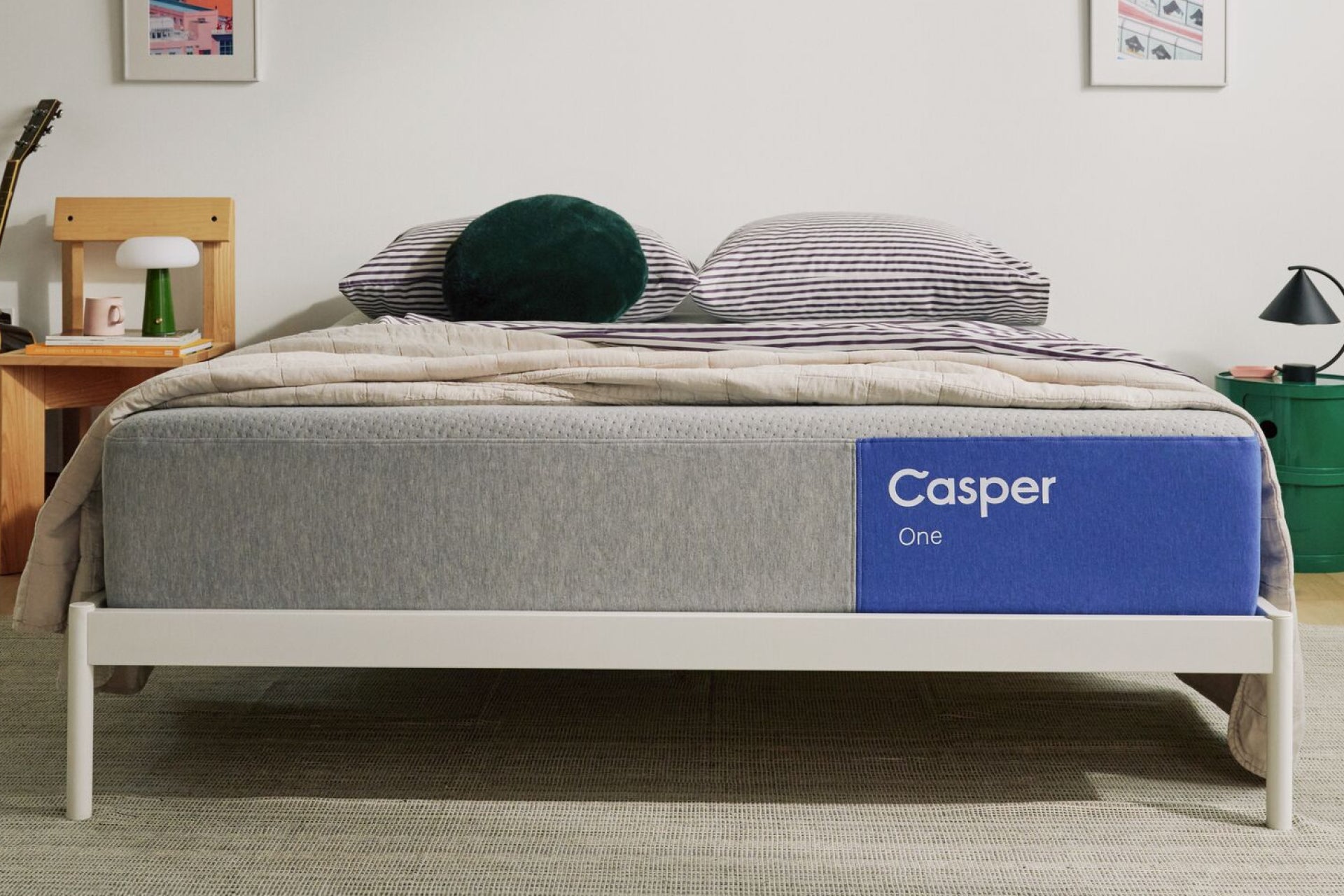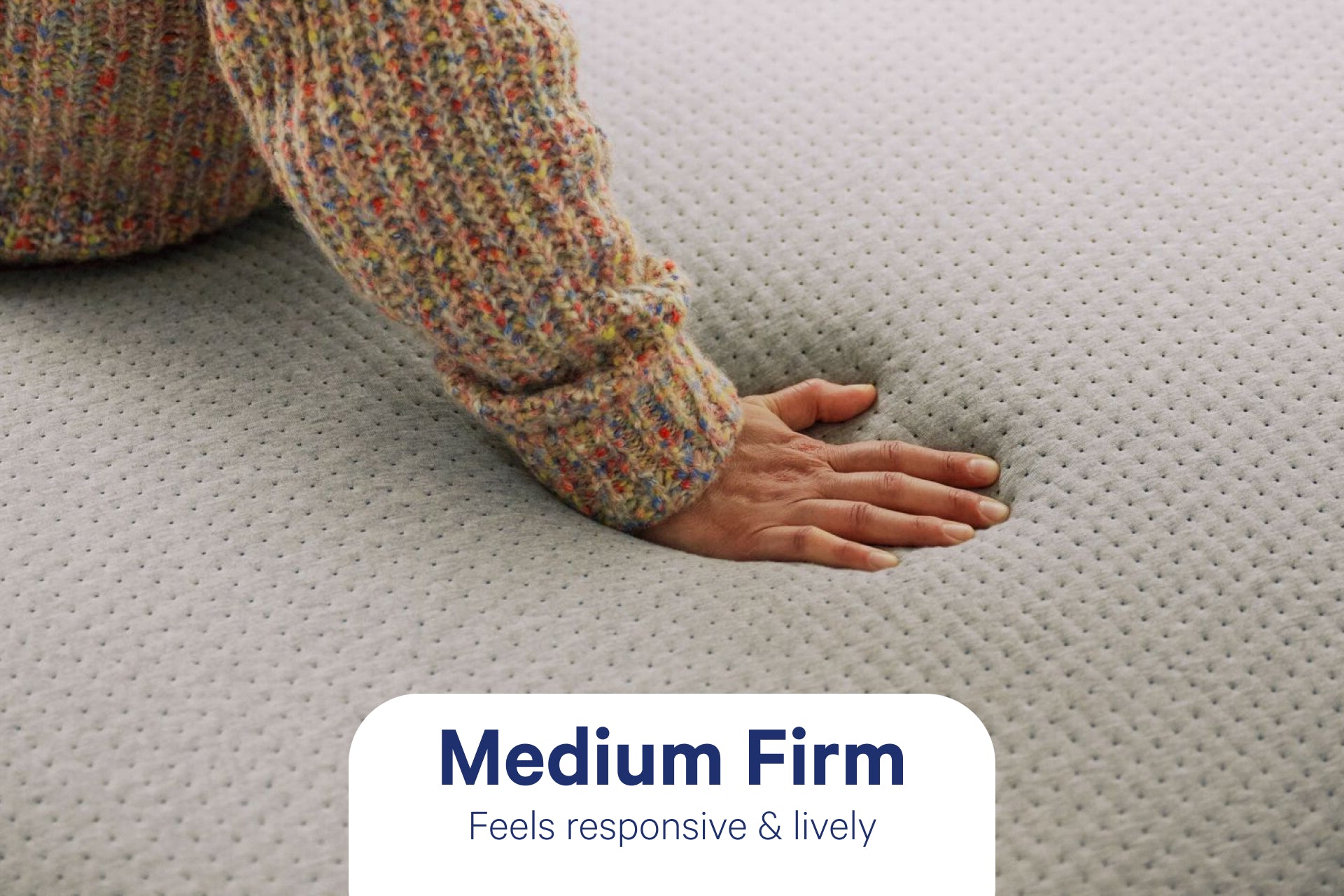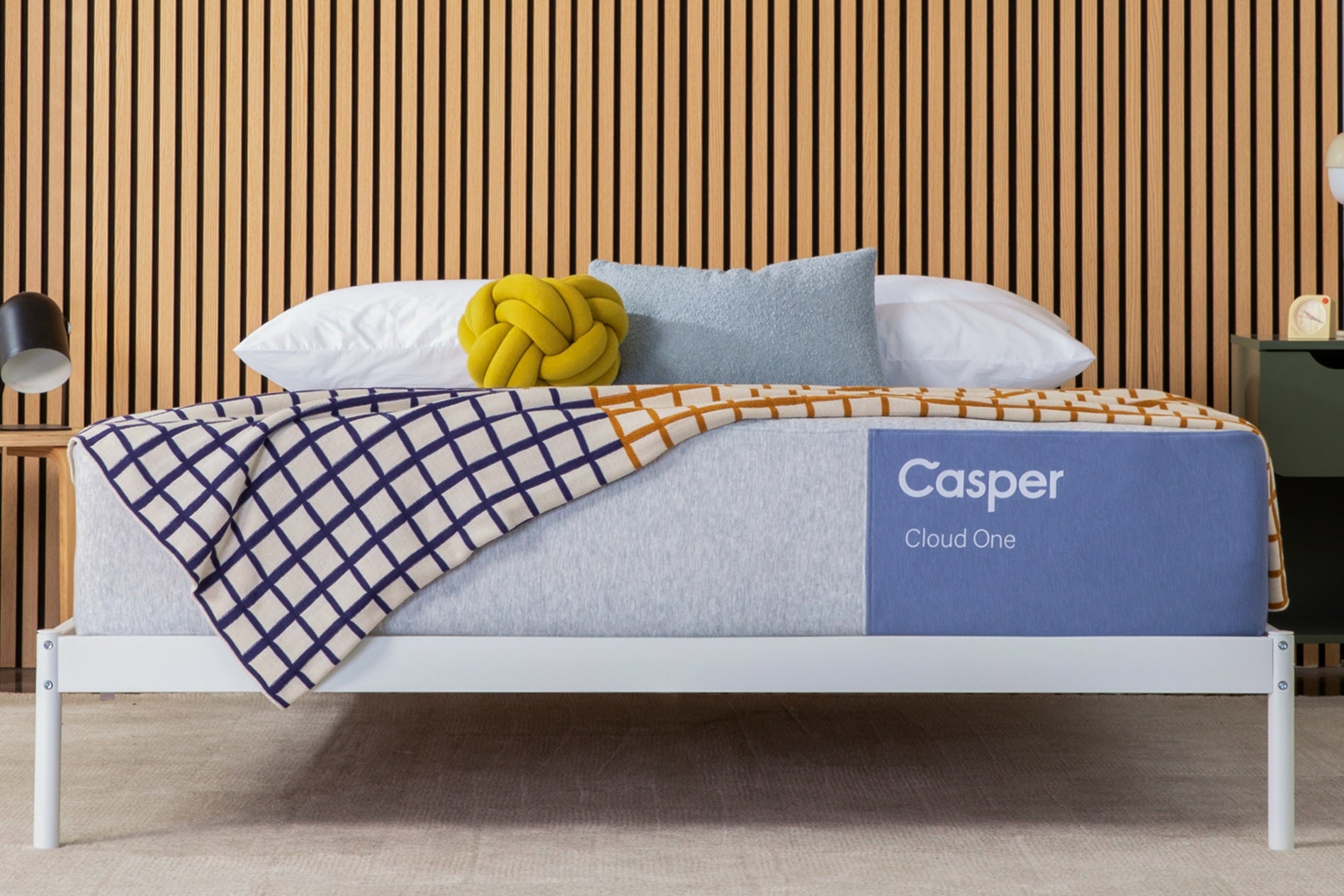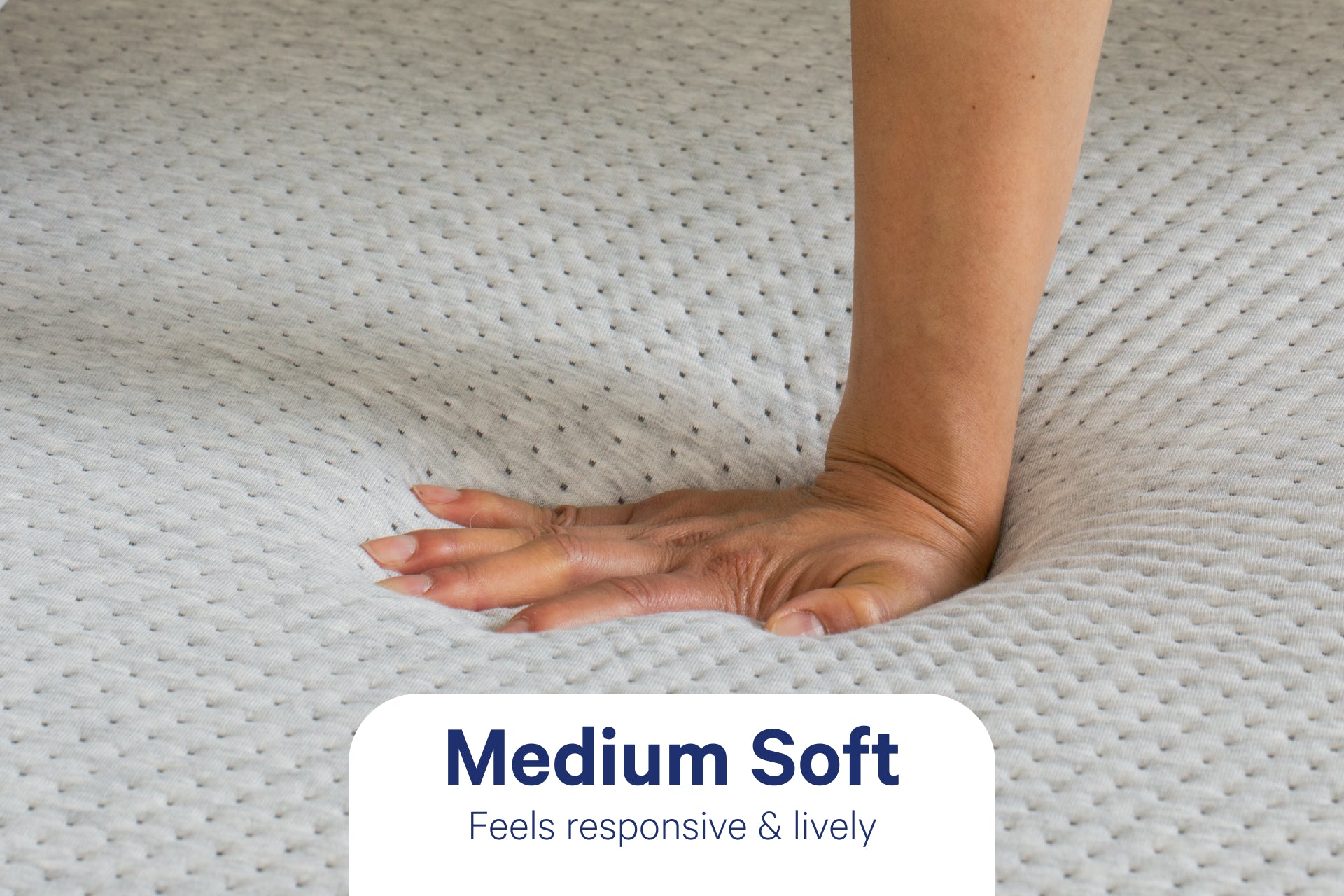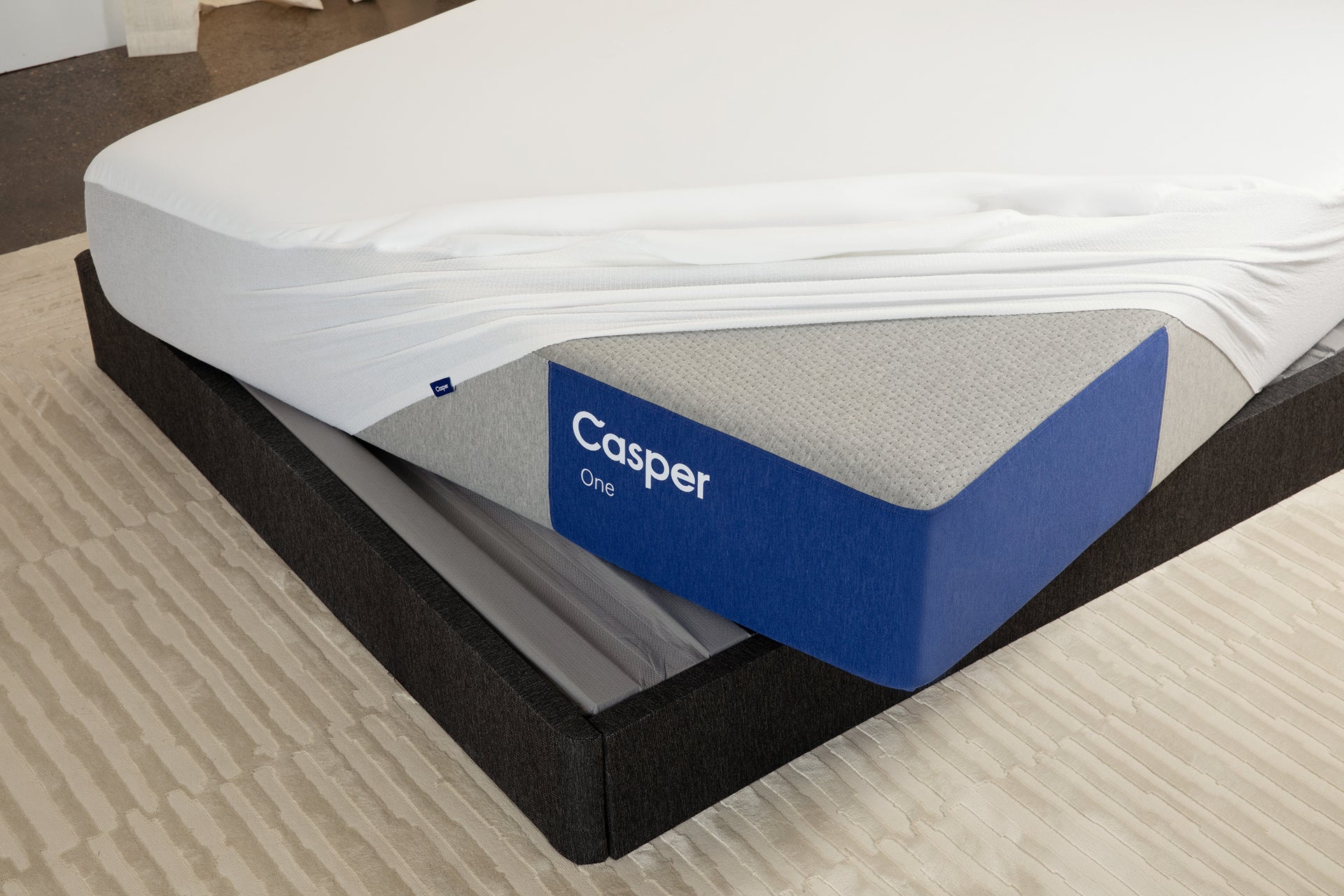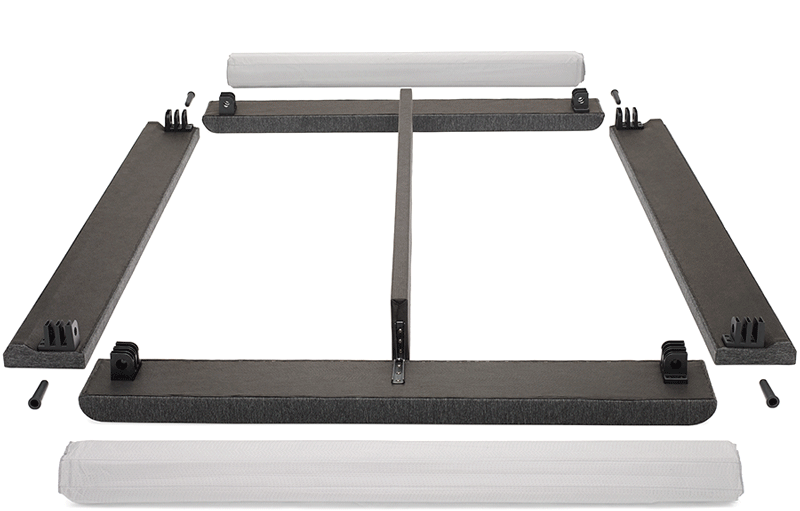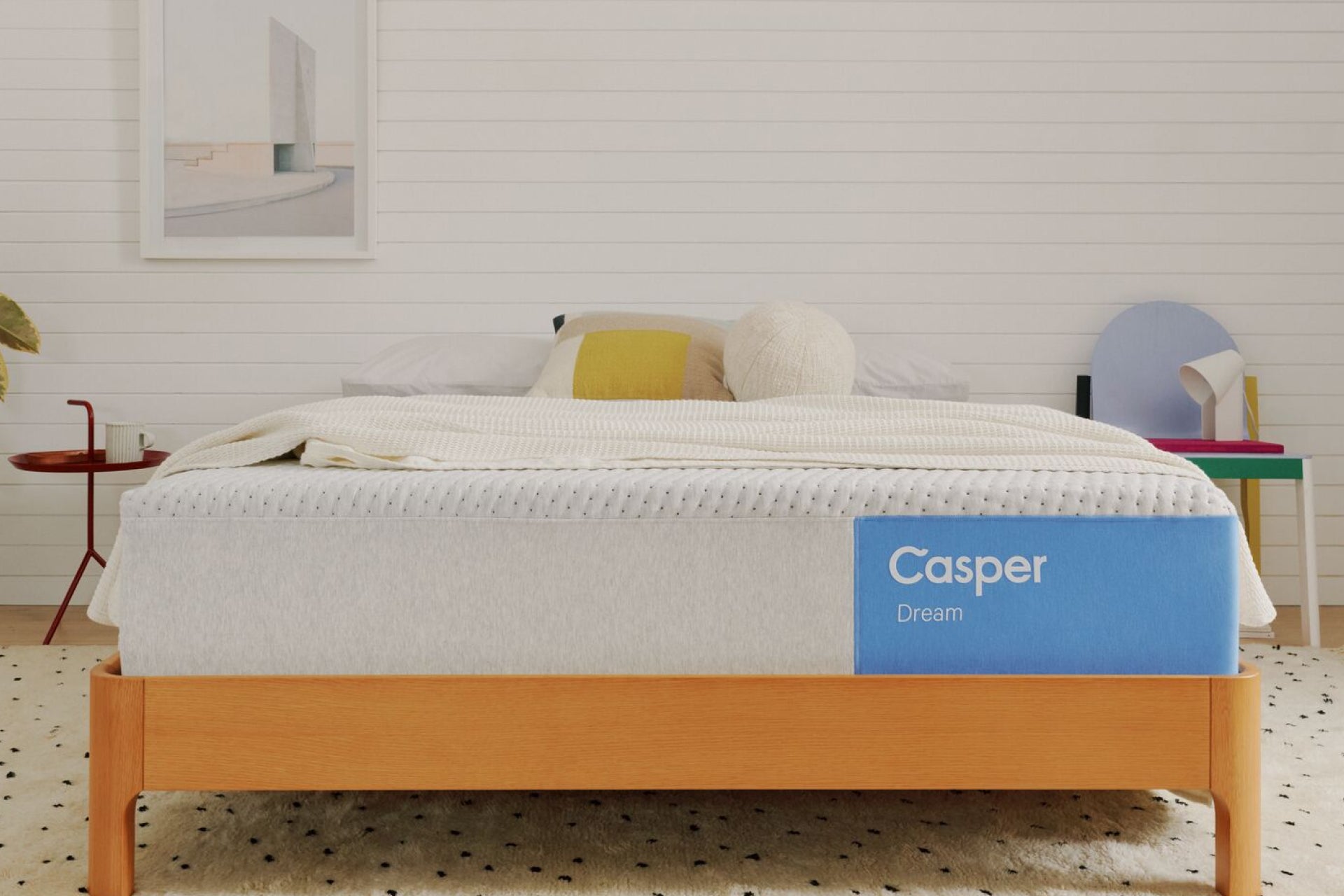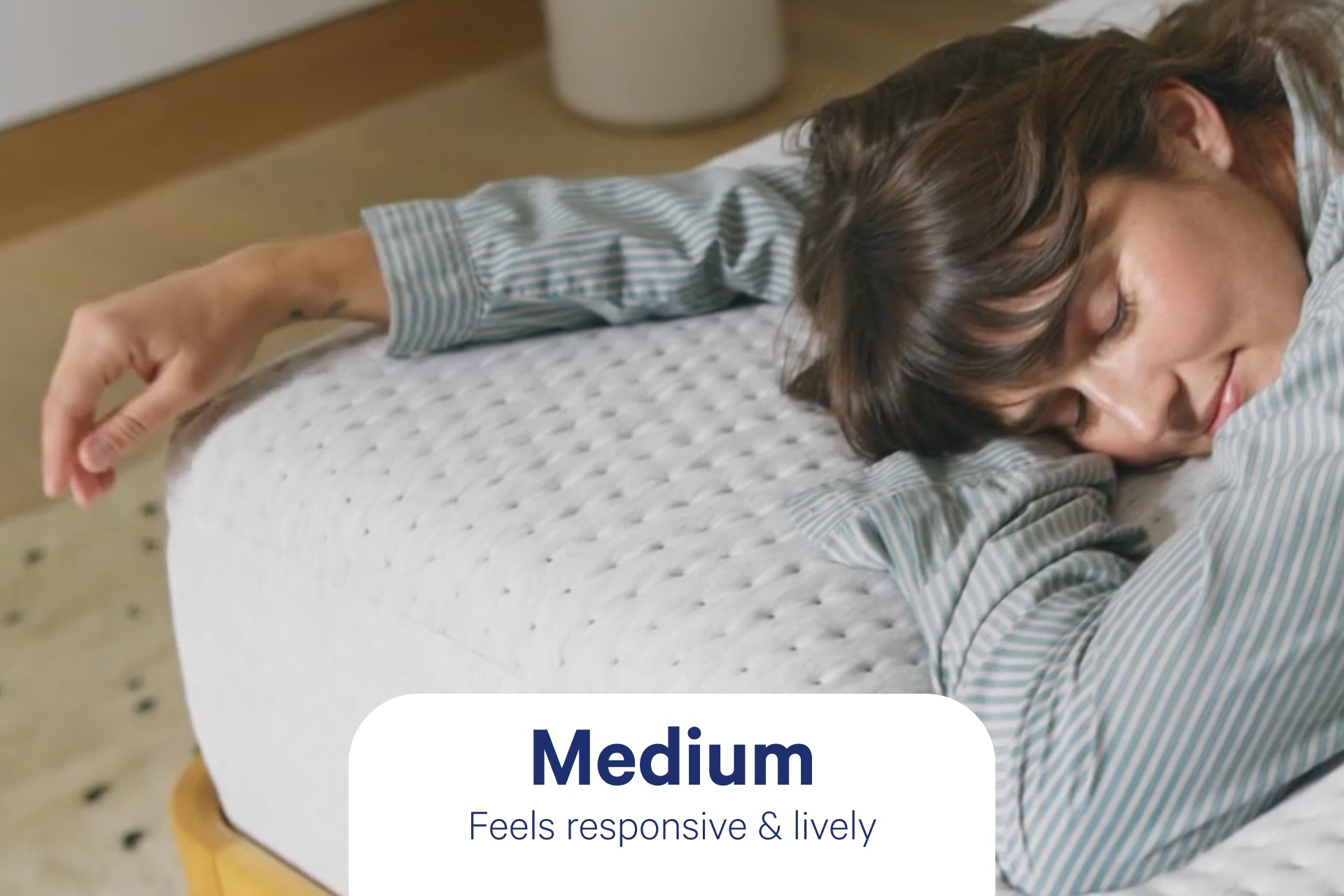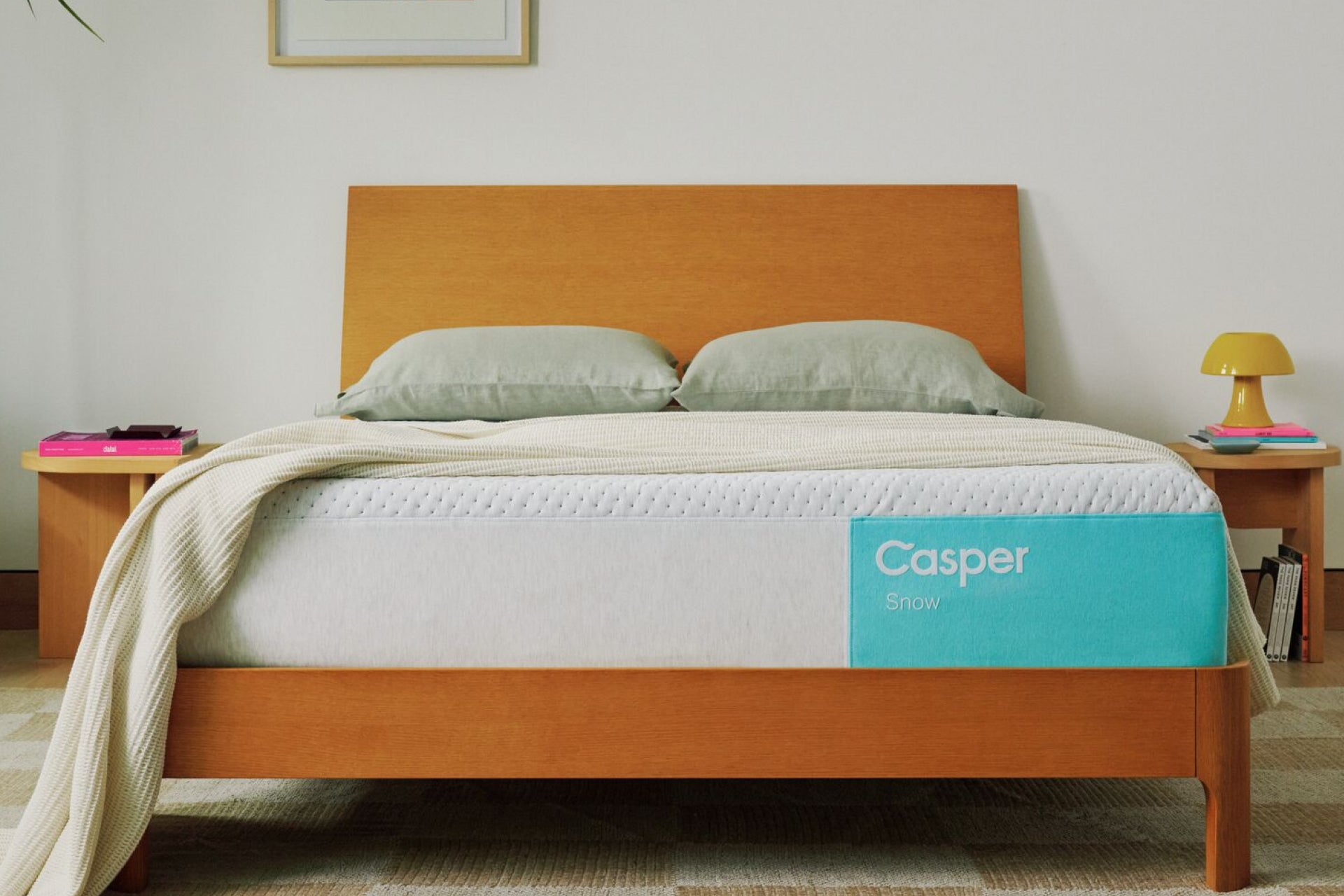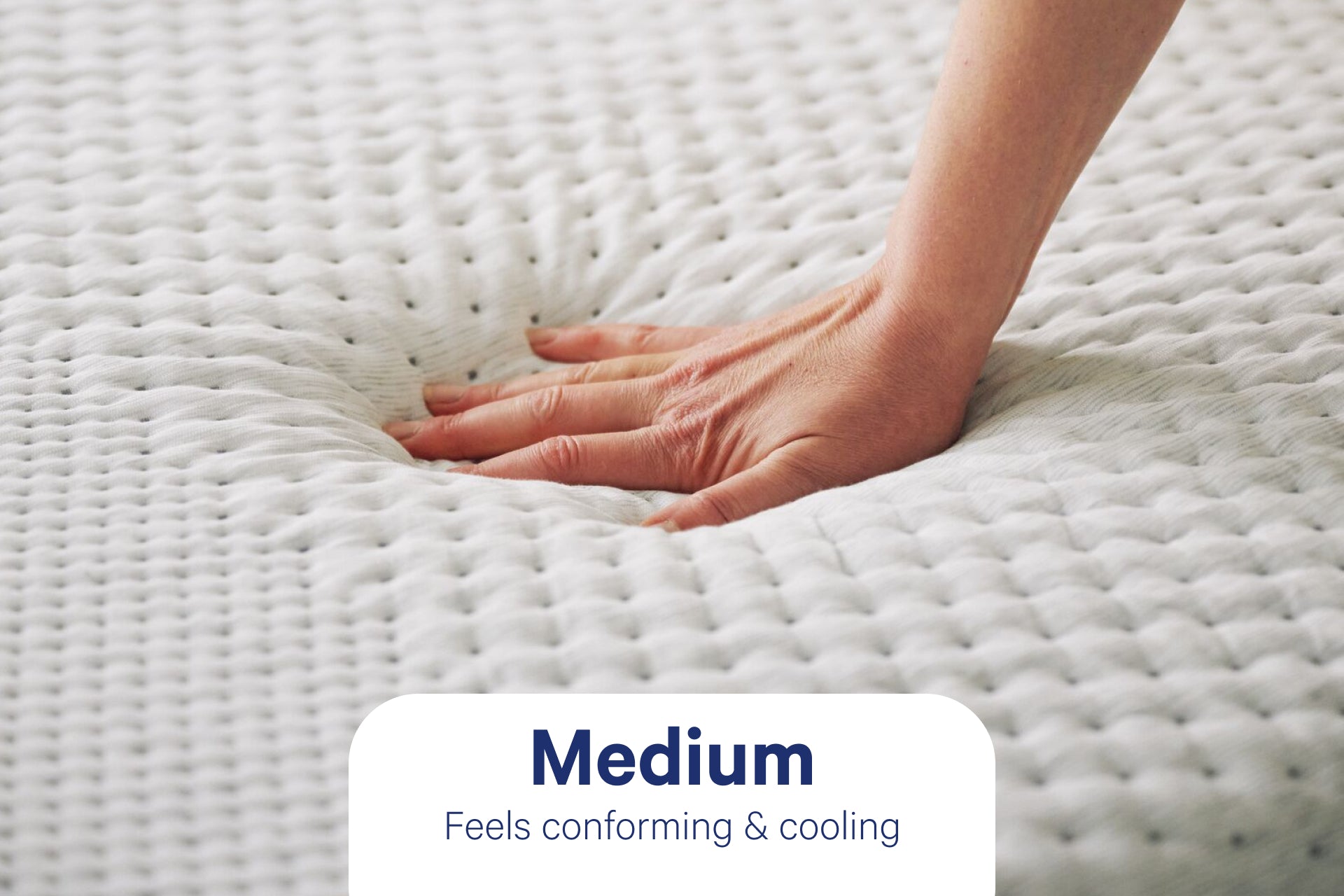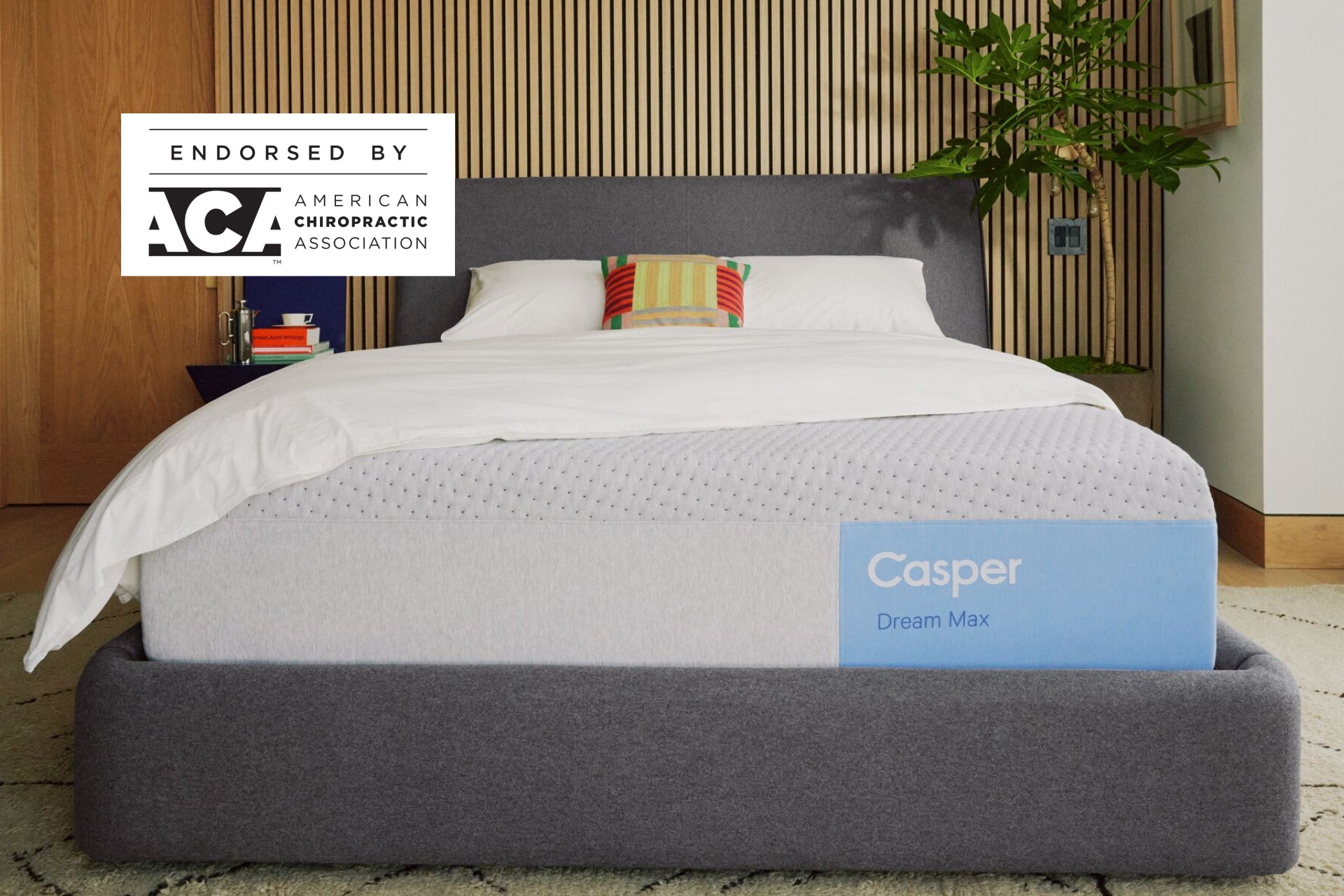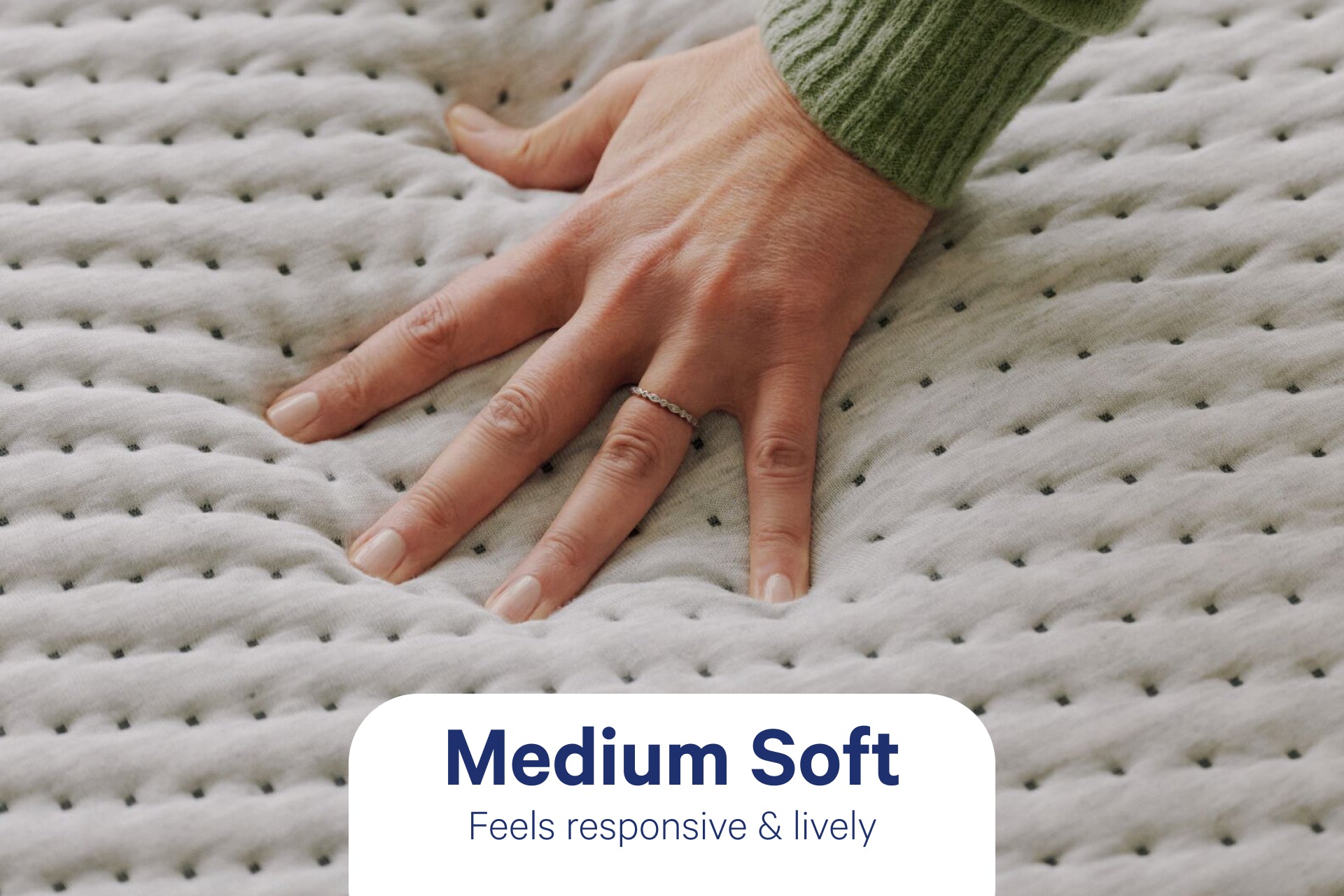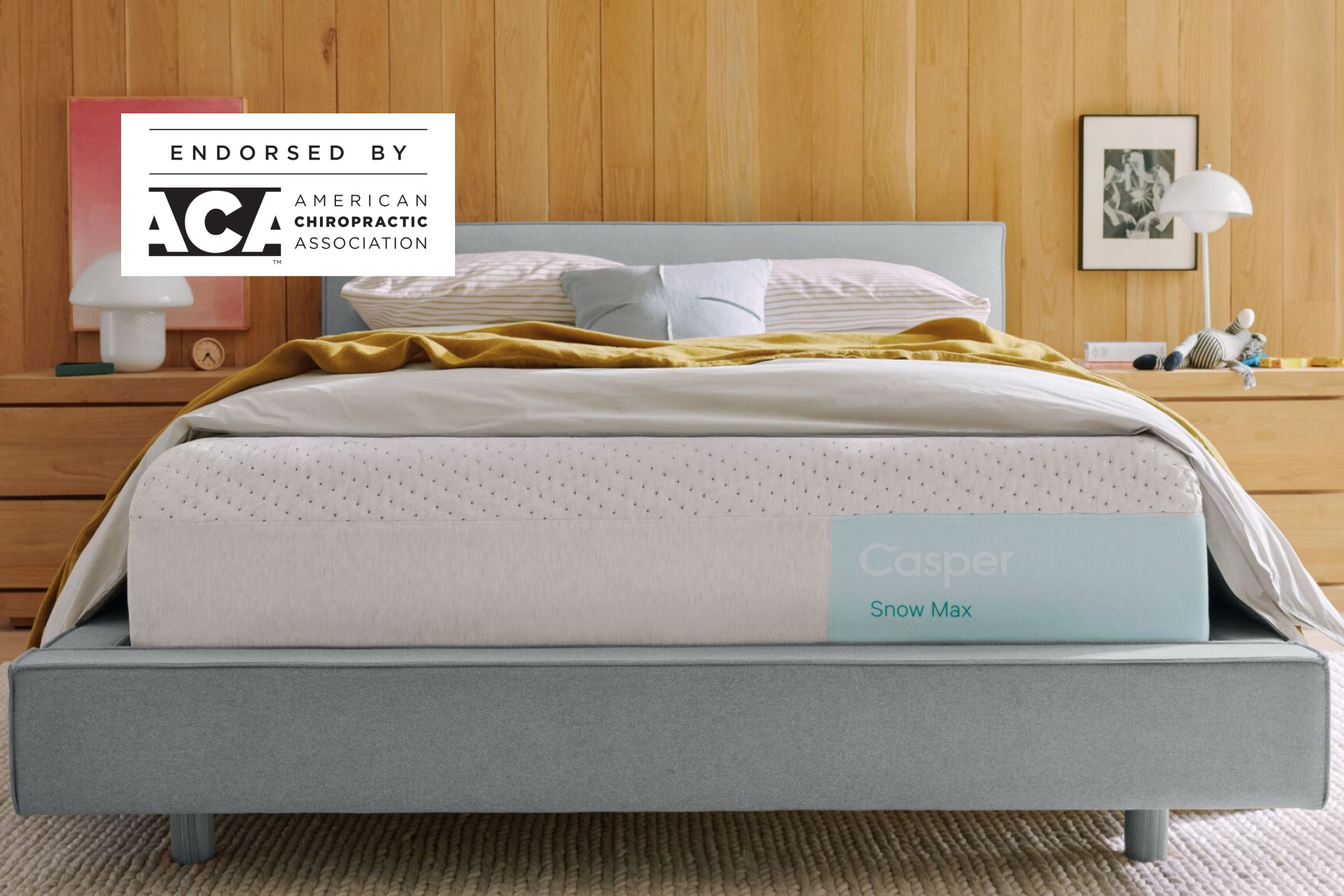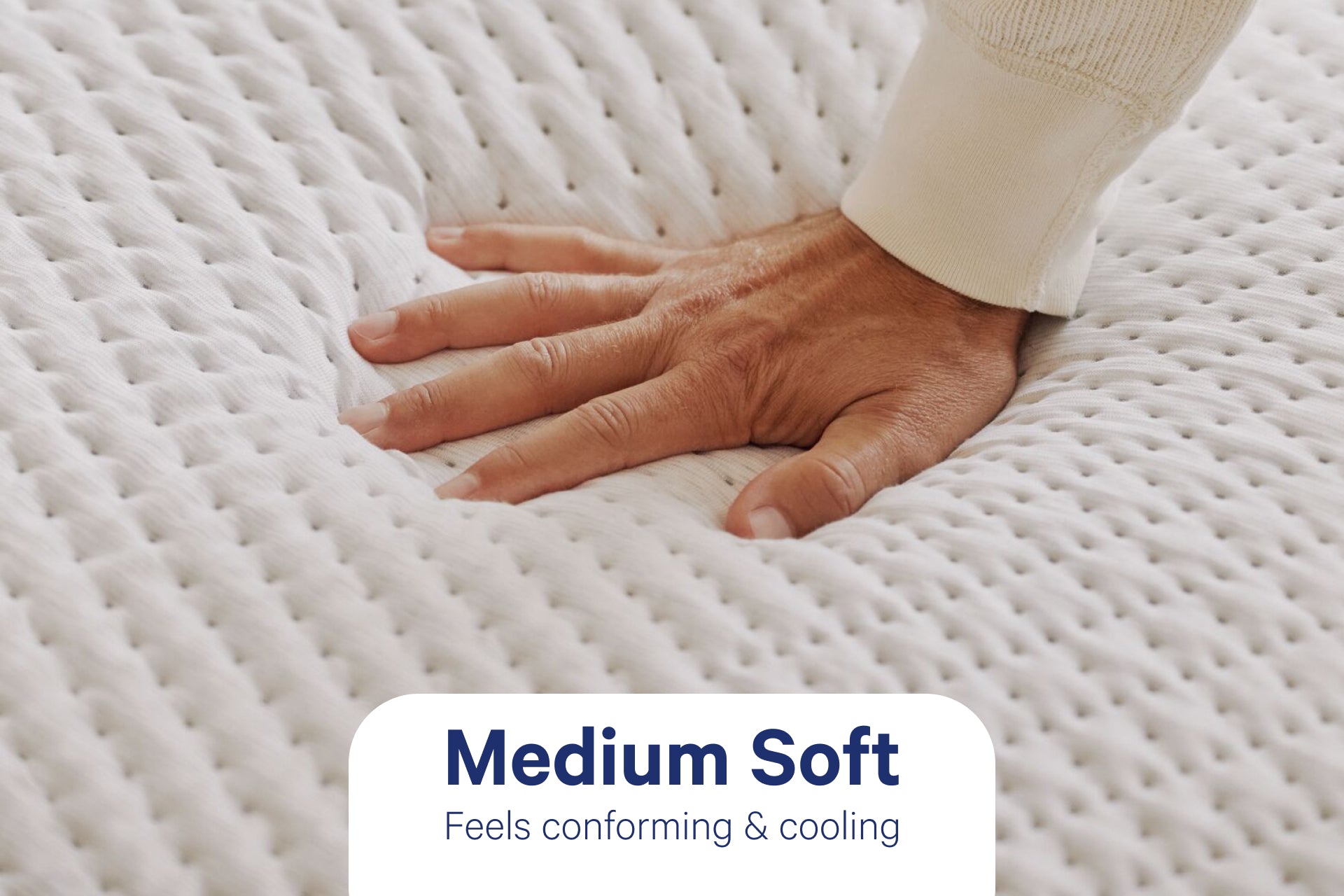Updated Feb 15, 2026
Plush mattresses are softer, providing more pressure relief but potentially less support, whereas firm mattresses offer greater stability and can help keep you cooler, so the best choice depends on your comfort preferences, sleep style, and pain points.
Just like Goldilocks, we all have our own preferences for mattress firmness. Many of us may find a plush, pillowy mattress too soft for our tastes, while others may feel that an extra-firm, super-supportive bed is simply too hard for comfort.
Despite these personal preferences, there are concrete pros and cons to choosing a plush vs firm mattress. But short of trying every bed in sight before the three bears come home, how can you determine what type of mattress is right for you?
Slip your pajamas on — we’re here to put the plush vs firm mattress debate to bed and help you choose the right style for your sleep needs.

What Is a "Plush" Mattress?
When you hear someone say, “It feels like I’m lying on a cloud,” they’re usually referring to a plush mattress. Factors like weight, pain points, and personal preference can affect how each person experiences mattress firmness but, in general, plush mattresses are usually:
- Supremely soft
- Fluffy
- Pillowy
If you lie down on a bed and begin sinking in, it’s safe to say you’re atop a plush mattress.
While there’s no universal standard for what makes a mattress plush or firm, most manufacturers will use a scale from 1-10 to label their different models, with the lower numbers denoting a softer feel and higher numbers signaling extra firmness.
Usually, the mattress firmness scale look like this1:
- 1-2 – Extra soft
- 3-4 – Soft
- 5-6 – Medium
- 6.5 – True medium
- 7-8 – Firm
- 9-10 – Extra firm
So, you can get an idea of how soft or hard any single mattress maybe by checking its rating. If it’s rated from 1-4, it’s likely considered a plush mattress. But the question remains: Is a soft, plush mattress the right choice for you? The best decision will depend on your unique needs.
Pros of Plush Mattresses
Personal preference aside, there are several key, observable upsides to sleeping on a soft mattress. A few of the most notable pros of choosing a plush bed include:
- Reduced pressure on pain points – The firmer a mattress is, the less you’ll sink into it and, ultimately, the less you’ll actually touch the bed. When a mattress is too firm, you more or less float atop it with a few key points on your body making contact. A plush mattress, however, allows you to melt into its soft surface, cradling your body and allowing for more even pressure distribution across a greater surface area.2
- Proper spinal support – As mentioned, when a mattress is too firm, your body can’t sink in to make contact. This can be particularly detrimental to your spine, which should be cradled for proper support as you sleep. A more plush mattress allows your back to rest squarely atop its soft padding — meaning less strain on your spine.3
- Deeper sleep – Researchers found that test subjects who favor a plush mattress over a more firm model tend to fall into deeper, more effective sleep — though, if you prefer a more firm mattress, switching to soft may not garner the same results.4
Despite these benefits, sleeping atop an ultra-plush mattress does have its downsides.
Cons of Plush Mattresses
While you may love the idea of sleeping on a cloud, choosing a mattress that’s too soft can run the risk of:
- Inadequate spinal support – Just like a too-firm mattress doesn't allow the bed to cradle your spine, a too-soft mattress may also offer improper back support for sleepers. With less resistance holding you up, you can increase the pressure on your vertebrae — potentially leading to discomfort, pain, and other back issues.3
- Hip and shoulder sinkage – As noted, a softer mattress allows you to sink in—which can feel exceptionally comfortable for many sleepers. On the other hand, a plush mattress can also cause different parts of your body — particularly your hips and shoulders — to land lower than other areas, such as your back. This can cause the same spine issues (i.e. your back floating above the mattress, rather than touching it) as a firm bed. It can also lead to pain and other problems in your back, hips, and shoulders.5
So, with these issues in mind, should you opt for a firm mattress over a plush model?
What Is a "Firm" Mattress?
Firm mattresses are usually harder and more supportive than their plush counterparts. Unlike plush mattresses that allow your body to sink in, firm mattresses provide a flatter sleeping surface, keeping your body more level throughout the night.
Firm mattresses are generally rated between 7-10 on the firmness scale. The higher the number, the firmer the mattress, which means you'll feel less sinking and more resistance.
Again, these figures don’t denote any standard degree of firmness, but rather what manufacturers decide to score their own models. If you lie atop a mattress and float more than sink, however, it’s likely a firm mattress.
Pros of Firm Mattresses
Choosing a firm mattress over a plush one can be the best choice depending on your needs and personal preferences. With a firm mattress, you get:
- Proper support – While too firm of a mattress can cause your spine to float above the bed, you do need a certain degree of firmness to effectively support your back. Ideally, the mattress you choose will have the correct level of resistance to support your spine and joints without causing undue pressure on key pain points. If you wake up without pain, you’ve found a mattress in the Goldilocks zone.3
- Better airflow and temperature regulation– A firm mattress can help keep you cool at night by increasing the airflow around your body. When you sink into a soft, plush mattress, you’re surrounded by padding. While this can be extremely comfortable, it can also be extra warm. If you’re a hot sleeper, a firm mattress might be your ticket to cooler, more restful nights.
- Potential lifestyle improvements – Recent studies have tied a firmer mattress to a higher quality of sleep. In turn, this improved slumber can lead to reductions in anger, tension, fatigue, perceived stress, pain, and confusion — as well as increases in overall vigor and energy.6
Cons of Firm Mattresses
Despite all the positives of sleeping on a firm mattress, they do offer a couple of downsides, including:
- The potential for back pain – When a mattress is too firm, it fails to properly cradle your spine. And, as noted, when your back floats above your mattress, rather than making contact with it, it can place undue pressure on your vertebrae and cause potential discomfort, damage, and pain.4 Learn how to tell if your bed is causing back pain in our blog.
- Shaking and motion transfer – If you sleep with a partner, there’s a higher chance that their movements will disturb you if you choose a firmer mattress. That’s because softer mattresses absorb much of the energy created when your partner tosses and turns. A firmer mattress, however, may rock and shake more whenever your partner moves.
With all the facts laid out, how can you decide whether to invest in a plush or a firm mattress?
What's Best for You? Plush vs Firm Mattress Comparison Chart

Ultimately, it’s up to you to find the exact level of mattress firmness that matches your body, sleeping style, and personal preferences. With this quick comparison, however, you can easily determine the major differences between plush and firm mattresses:'
| Firm | Plush | |
| Comfort level | Medium | High |
| Support | High | Medium |
| Pressure relief | Medium | High |
| Ideal sleep position | Back | Side/stomach/back |
| Durability | High | Medium |
| Temperature regulation | High | Medium |
| Motion isolation | Medium | High |
| Price | Varies | Varies |
| Best for | Back sleepers, individuals with spinal and back issues, hot sleepers | Stomach and side sleepers, individuals with sensitive pressure and pain points |
Comfort
A plush mattress offers a higher comfort level with more cushioning and contour, creating a softer, more cradling feel. A firm mattress feels more stable and supportive, with less sink and a more “on top of the bed” sensation. If you prefer a mattress that feels soft and cozy, plush may be a better match. If you like a mattress that feels sturdy and structured, firm could be the right fit.
Support and Pressure Relief
Firm mattresses provide high support and help maintain spinal alignment, which can be especially helpful for people with back pain or spinal concerns. Plush mattresses provide higher pressure relief, allowing the foam or comfort layers to contour around pressure points like the shoulders and hips. In short: firm focuses more on support, while plush emphasizes pressure relief.
Sleeping Position
Firm mattresses are often best for back sleepers, as they help keep the spine in a neutral position. Plush mattresses tend to work well for side, stomach, and combination sleepers, since the extra cushioning accommodates different positions and reduces pressure on sensitive areas.
Durability
Firm mattresses are generally considered more durable, as their denser support layers tend to hold their shape longer over time. Plush mattresses may feel luxurious, but their softer comfort layers can compress sooner, which places them in the medium durability range by comparison.
Temperature
Firm mattresses typically offer better temperature regulation, since you rest more on top of the mattress and experience greater airflow. Plush mattresses allow more sink-in, which can trap some body heat and feel slightly warmer for certain sleepers.
Motion Isolation
Plush mattresses usually provide higher motion isolation, absorbing movement and reducing disturbances from a partner shifting positions. Firm mattresses offer moderate motion isolation, which may allow a bit more movement transfer across the surface.
Price
Both plush and firm mattresses are available across a wide range of price points. Cost often depends more on materials, construction, and mattress features than firmness alone.
Plush and Firm Casper Mattress Recommendations
At Casper, we understand sleep and know there's plenty of variation in individual sleep needs. That’s why we offer a wide range of mattresses suited to different sleeping styles, body types, and, of course, firmness preferences.
Plush - The Maxes
The Casper Snow Max cooling mattress features zoned support to give you the resistance of a firm mattress where it matters most — around the hips and spine — but the softness of a plush mattress everywhere else. There’s also no need to worry about sinking in and getting too hot, as the Snow Max boasts a variety of cooling features, including:
- A Snow Cover to keep the top from overheating
- Three Heat Delete Bands to transport radiant warmth away from the mattress
- Phase Change Material to wick excess heat off your body
If you want the support of a firm mattress combined with the soft feel of plush material, the Snow Max is your top choice. Combine it with our Hyperlite Cooling Sheet Set and our Foam Pillow made with Snow Technology for the ultimate cooling comfort.
Firm - The One
Fully foam, functionally firm. The One memory foam mattress by Casper reimagines the relationship between support and comfort with a medium-firm feel that cradles the curves of your body all night long. With multiple layers of memory foam specifically designed to adhere to your natural alignment, a durable core that prevents warping and lumps — plus an extra-cozy exterior — The One is a firm companion for any sleeper who favors support over softness.
Whether you prefer a plush or firm mattress — or anything in between — Casper has the perfect bed to ensure you rest easy, night after night.
Frequently Asked Questions
Does a mattress get softer over time?
Yes — most mattresses gradually get softer over time as the comfort layers break in and compress with regular use. This is normal and expected, especially with foam, memory foam, and pillow top materials. However, excessive softening, sagging, or loss of support may indicate that your mattress is wearing out and no longer providing proper spinal alignment.
How can you tell if your mattress is too soft?
Your mattress may be too soft if you wake up with lower back pain, feel like you’re sinking too deeply, or notice your spine falling out of alignment while you’re sleeping. You might also struggle to change positions easily or feel less supported overall. A mattress should cushion pressure points while still keeping your body properly supported.
What's the difference between a firm and a soft pillow mattress?
A firm mattress offers a stable, supportive feel with minimal sink, helping keep the spine aligned. A soft pillow mattress (often called a plush or pillow-top mattress) adds an extra cushioning layer on top, creating a softer surface with more contour and pressure relief. Both firm and soft pillow mattresses can be comfortable — the best choice depends on your sleep position, body weight, and personal comfort preference.
Sources:
- National Council on Aging. Understanding the Mattress Firmness Scale: A Comprehensive Guide. https://www.ncoa.org/adviser/sleep/mattress-firmness/
- National Library of Medicine. Effects of Mattress Material on Body Pressure Profiles in Different Sleeping Postures. https://pmc.ncbi.nlm.nih.gov/articles/PMC5310954/
- National Library of Medicine. The Influence of Mattress Stiffness on Spinal Curvature and Intervertebral Disc Stress—An Experimental and Computational Study. https://pmc.ncbi.nlm.nih.gov/articles/PMC9311775/
- National Library of Medicine. What type of mattress should be chosen to avoid back pain and improve sleep quality? Review of the literature. https://pmc.ncbi.nlm.nih.gov/articles/PMC8655046/
- National Library of Medicine. Biomechanical effects of a lumbar support in a mattress. https://pmc.ncbi.nlm.nih.gov/articles/PMC1840018/
- National Library of Medicine. Effectiveness of a grid mattress on adults' sleep quality and health: A quasi‐experimental intervention study. https://pmc.ncbi.nlm.nih.gov/articles/PMC11025355/








